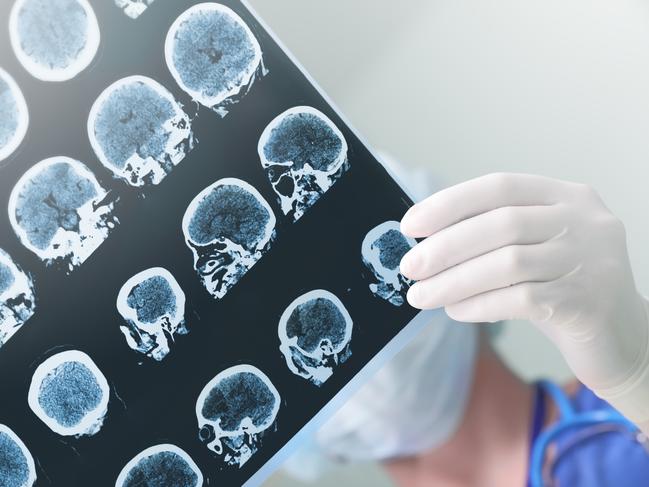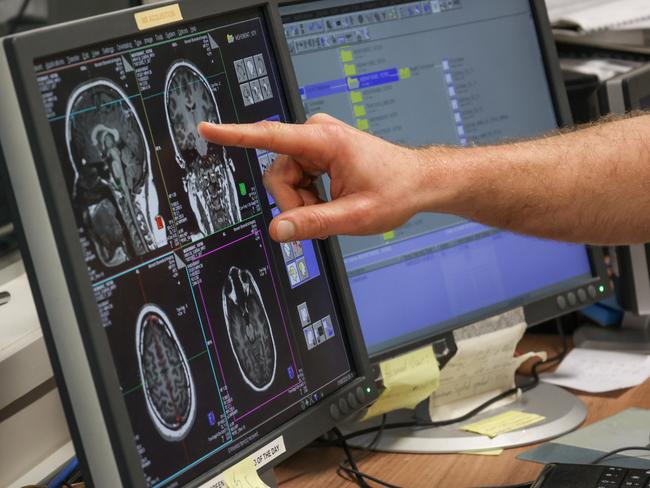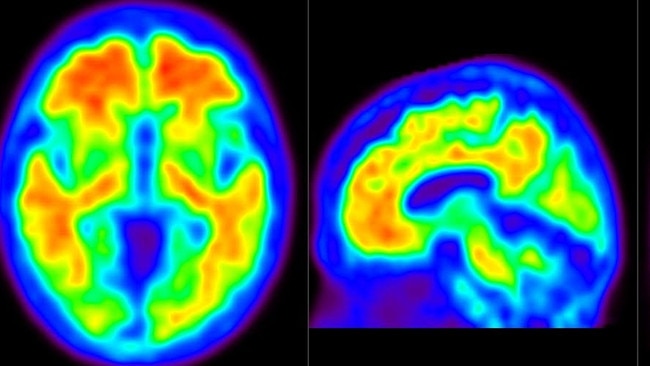Test that can detect dementia disease nine years earlier
Scientists have developed a first-of-its-kind test that can predict dementia nine years before a diagnosis.
Health
Don't miss out on the headlines from Health. Followed categories will be added to My News.
British scientists have developed a first-of-its-kind test that can anticipate dementia in a person up to nine years before a diagnosis — and with 80 per cent accuracy.
Experts from Queen Mary University in London are optimistic the new model could be available “within a few years”.
The test is more definite than memory tests or measurements of brain shrinkage, two frequently used methods for diagnosing dementia.
It brain scans while the brain is in “idle mode” — a term for where the mind isn’t set on a specific task.

Scientists said this technique has the “potential to fill an enormous clinical gap” by identifying people who are at risk of dementia and treating them before symptoms start to show.
Professor Charles Marshall, who led the team at Queen Mary University, studied brain scans from more than 1100 people from UK health database Biobank, which contains genetic and health information of half a million Britons.
Among the 103 people who had dementia, 81 had brain scans between five months and 8.5 years before being officially diagnosed.

Their brain scans showed less connectivity in the idle mode compared with those who didn’t go on to develop dementia, the findings showed.
“Predicting who is going to get dementia in the future will be vital for developing treatments that can prevent the irreversible loss of brain cells that causes the symptoms of dementia,” Professor Marshall said in findings published by Nature Mental Health.
“Although we are getting better at detecting the proteins in the brain that can cause Alzheimer’s disease, many people live for decades with these proteins in their brain without developing symptoms of dementia.

“We hope that the measure of brain function that we have developed will allow us to be much more precise about whether someone is actually going to develop dementia, and how soon, so that we can identify whether they might benefit from future treatments.”
In 2023, it was estimated that there were 411,100 (AIHW estimate) Australians living with dementia, according to the Australian Institute of Health and Welfare.
Based on AIHW estimates, this is equivalent to 15 people with dementia per 1000 Australians, which increases to 84 people with dementia per 1000 Australians aged 65 and over.
WHAT IS ALZHEIMER’S
Alzheimer’s disease is a progressive, degenerative disease of the brain, in which build-up of abnormal proteins causes nerve cells to die.
This disrupts the transmitters that carry messages, and causes the brain to shrink.
WHAT HAPPENS?
As brain cells die, the functions they provide are lost.
That includes memory, orientation and the ability to think and reason.
The progress of the disease is slow and gradual.
On average, patients live five to seven years after diagnosis, but some may live for 10 to 15 years.
EARLY SYMPTOMS
Loss of short-term memory
Disorientation
Behavioural changes
Mood swings
Difficulties dealing with money or making a phone call
LATER SYMPTOMS
Severe memory loss, forgetting close family members, familiar objects or places
Becoming anxious and frustrated over inability to make sense of the world, leading to aggressive behaviour
Eventually lose ability to walk
May have problems eating
The majority will eventually need 24-hour care
Source: Alzheimer’s Association
More Coverage
Originally published as Test that can detect dementia disease nine years earlier




